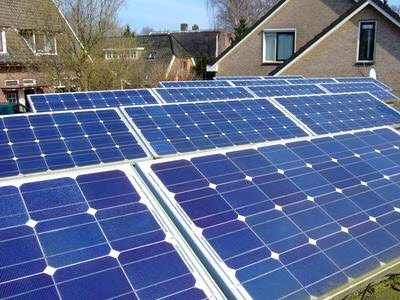
For the past couple years, the U.S government has offered federal grants amounting to 30% of the total installation value of a new solar system*, wind generator* or other renewable energy system. But is all that about to end?
Probably. The Federal Grant for Renewable Energy is not set to be renewed at the end of this year. Quietly and discreetly, no one has mentioned it. It appears that if you have not started your installation, then tough luck to you.
For most of us that leaves us with only two options: either get moving or miss out… your home renewable energy system has to be “started” by the end of this year in order to qualify for the grant.
If you want to get started you can take a look at our information on solar grants for your home to begin the application process.
But… is it worth borrowing money to qualify for these solar grants?
Recently we have been asked if it is worthwhile to actually borrow money to install a renewable energy system, just to take advantage of the 30% grants. Jane and I have always been proponents of debt free living and feel that it is very important to extend that thinking into everything we do.
![]() Installing solar panels or a wind generator on your property is about independence: about being free of the power company (at least for off-grid installations). Why would you want to enslave yourself to the bank with another mortgage, or second mortgage to save money in other parts of your life?
Installing solar panels or a wind generator on your property is about independence: about being free of the power company (at least for off-grid installations). Why would you want to enslave yourself to the bank with another mortgage, or second mortgage to save money in other parts of your life?
There have been times when we have been tempted to borrow to make our plans move ahead a little faster… so tempted at times. And we have succumbed to those temptations on two occasions. Each time we wished we had waited…
Please feel free to disregard this, though: it is up to you and your family. But from personal experience (16 years worth), we have seen various installations built on borrowed money. In over 90% of those cases, the family was not better off; the money simply went to a different source. The savings slipped right through their fingers, leaving a bad taste in their mouth. Or worse, creating a feeling that renewable energy was not the answer to their energy needs, when really it was the decision-making process.
Start with good decisions for your family. Discuss them in detail. You have time. Why pay for mistakes that could have been corrected before they were implemented.
If it is your time to have renewable energy, AND your family is fortunate enough to be able to do this without borrowing money, then we say go for it.
If not, discuss your options carefully. After all, missing out on a 30% grant is not the end of the world, but borrowing money that perhaps in a year you can’t pay back because of a change in your life could hurt a lot.
Jane and I will help you in any way we can with your decision, and when you are ready we will even help you with free system design help.
Thinking about trying to take advantage of this grant? Check out our listings of solar technology… including solar panels, grid-tie systems, and inverters.


tom wilson
I would like more info about solat grats ending
evelyn
did u every find about how get access to the solar grant info
Mary Poppins in Heels
When can we claim the federal tax credit–when the system is purchased or not until it’s fully installed? Or is it when it’s connected and working…?
DAvid
Amen to that brother. Finally someone with a little common sense and logic. I get upset when people think they got such a great deal on saving on their power bill, when all they really did was shifted the cost somewhere else onto a long term loan. The logical thing to do is learn to conserve more energy thru reduction. Then the money never leaves your pocket in the first place. This “green” tactic is just another effort to try to stimulate some job growth and make us feel better about saving the environment. In 25 years we will all be complaining about all the depleted solar panels ending up in the landfills. The “Sun” is the only “Green” thing that goes into the panel, but how the panel is constructed and the efforts to obtain the materials negates the trade off of protecting the earth.
evelyn
how CAN i apply for the solar panel grant so that i can claim my ending break tax credit